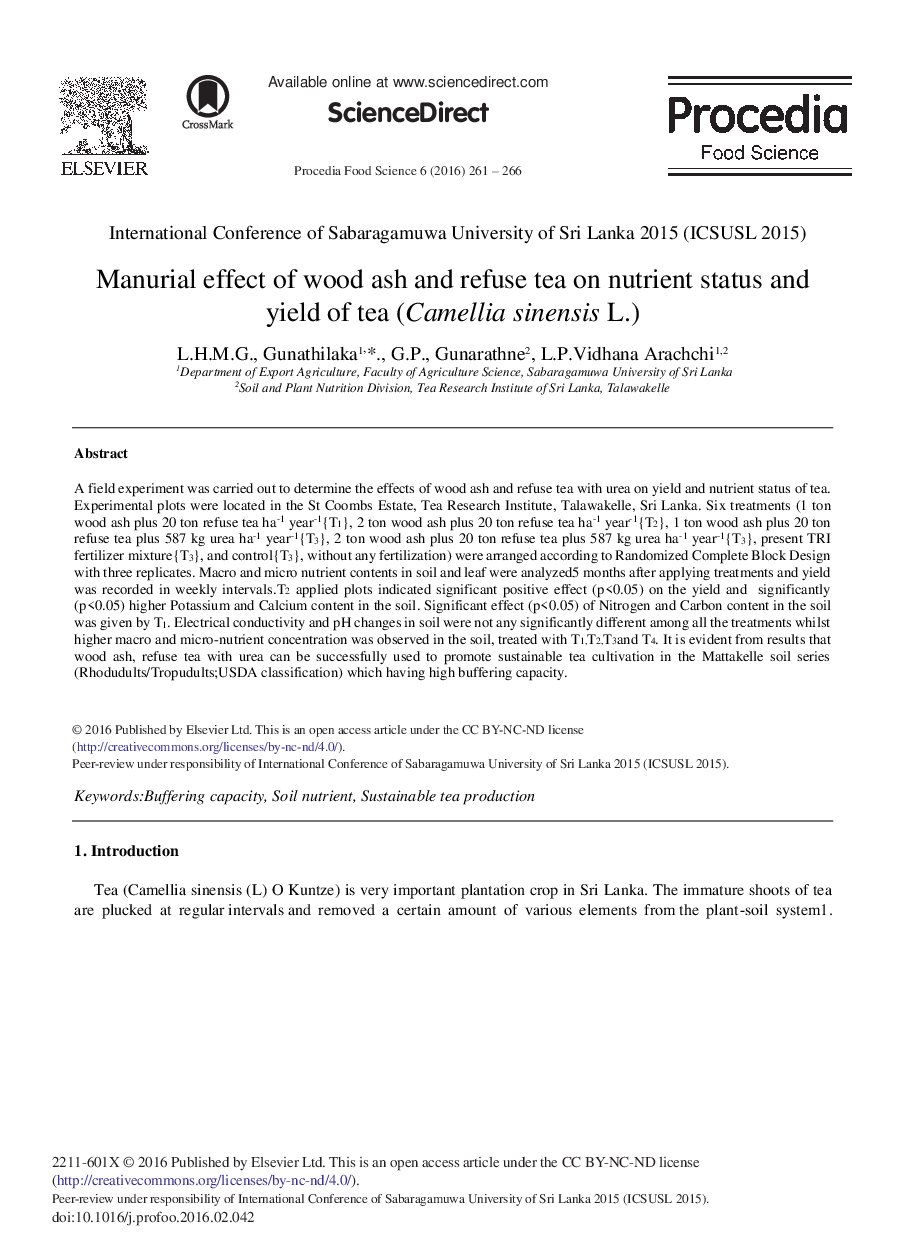| Article ID | Journal | Published Year | Pages | File Type |
|---|---|---|---|---|
| 1266217 | Procedia Food Science | 2016 | 6 Pages |
A field experiment was carried out to determine the effects of wood ash and refuse tea with urea on yield and nutrient status of tea. Experimental plots were located in the St Coombs Estate, Tea Research Institute, Talawakelle, Sri Lanka. Six treatments (1 ton wood ash plus 20 ton refuse tea ha-1 year-1{T1}, 2 ton wood ash plus 20 ton refuse tea ha-1 year-1{T2}, 1 ton wood ash plus 20 ton refuse tea plus 587 kg urea ha-1 year-1{T3}, 2 ton wood ash plus 20 ton refuse tea plus 587 kg urea ha-1 year-1{T3}, present TRI fertilizer mixture{T3}, and control{T3}, without any fertilization) were arranged according to Randomized Complete Block Design with three replicates. Macro and micro nutrient contents in soil and leaf were analyzed5 months after applying treatments and yield was recorded in weekly intervals.T2 applied plots indicated significant positive effect (p<0.05) on the yield and significantly (p<0.05) higher Potassium and Calcium content in the soil. Significant effect (p<0.05) of Nitrogen and Carbon content in the soil was given by T1. Electrical conductivity and pH changes in soil were not any significantly different among all the treatments whilst higher macro and micro-nutrient concentration was observed in the soil, treated with T1,T2,T3and T4. It is evident from results that wood ash, refuse tea with urea can be successfully used to promote sustainable tea cultivation in the Mattakelle soil series (Rhodudults/Tropudults;USDA classification) which having high buffering capacity.
